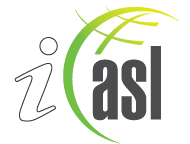

|
|
IASL Research Abstracts: 179
Findings: In Israel, teacher librarians attitudes towards censorship were found to correlate with the overall ideology of the educational system as represented in each schools sectorial affliation (religious and non-religious sectors).
Abstract: School librarians' attitudes towards censorship on principle are a critical factor in the process of handling censorship attempts and complying with, or rejecting them. The study sought to determine the attitudes of high school librarians in Israel, a country characterized by an interesting mixture of modern western-oriented society and culture on one hand and strong traditional elements in the population on the other hand. A questionnaire including, besides demographic questions, 17 statements concerning censorship, was mailed to 442 schools ( two-thirds of the population) yielding 187 usable replies, a 42.3% response rate. A positive correlation was found between the librarian s attitude, in principle and in practice, towards censorship and the sectorial affiliation of the school in which she/he was employed at the time of the study. Agreement with the need for control and supervision over the content of the library collection and with censorial practices was much greater among those employed in the more orthodox sector then among their colleagues employed in the less-orthodox one. The latter ones, in turn, displayed greater agreement with censorship than their colleagues in the non-religious sector. Women tended to support the idea of applying censorship to the library collection more than men, whose proportion in the sample was quite low, reflecting the dominantly feminine state of the profession in the country. One may conclude that the single main factor affecting the attitude towards censorship of the library collection is undoubtedly the sectorial affiliation of the school. The greater tendency of the religious sector to apply censorship to the library collection probably stems from ideological outlook underlying its entire educational system, which strives to conserve traditional values and disapprovingly views prevailing trends of excess permissiveness. It is worth noting, however, that differences found between sectors were not at all unequivocal. Some objection to censorship was found among the religious sector, and at the same time, some agreement with censorship was found even in the non-religious sector, especially regarding certain extreme statements unconditionally rejecting censorship.
Ytzhaki, M. & Sharabi, Y. (2006). Attitudes of Israeli high school librarians towards censorship in library collection. In The Multiple Faces of Literacy: Reading, Knowing, Doing -- IASL Reports, 2006: Selected Papers from the 35th annual conference of the International Association of School Librarianship, and the Tenth International Forum on Research in School Librarianship, Lisbon, Portugal, 3-7 July 2006. Ana Bela Martins, Antonio Pina Falcao, Elsa Conde, Isabel Andrade, Manuele Barreto Nunes, Maria Jose Vitorino, editors. International Association of School Librarianship, Erie (PA), USA, 2006. ISBN: 978-1-890861-32-2.
Subject Categories: 2
